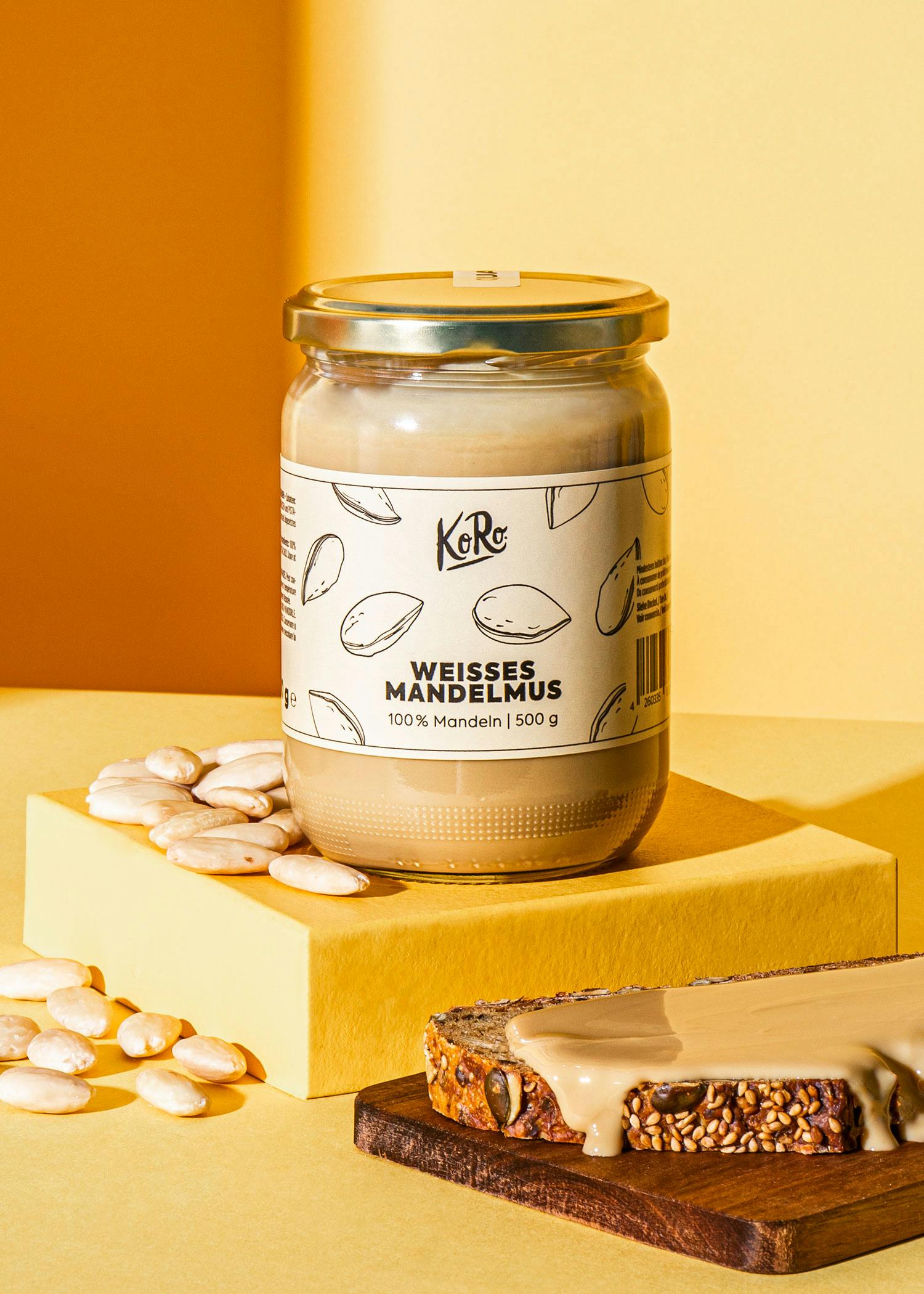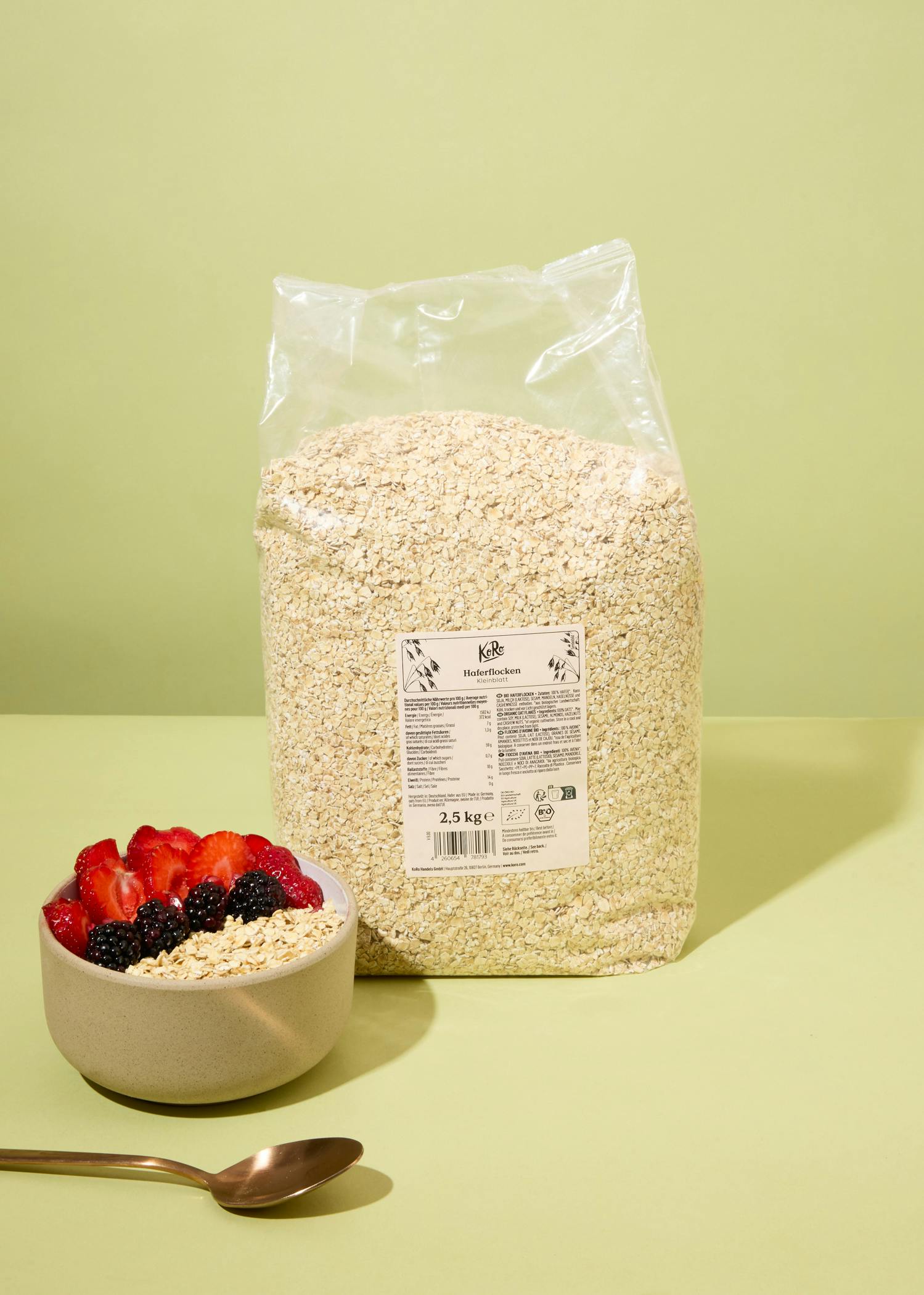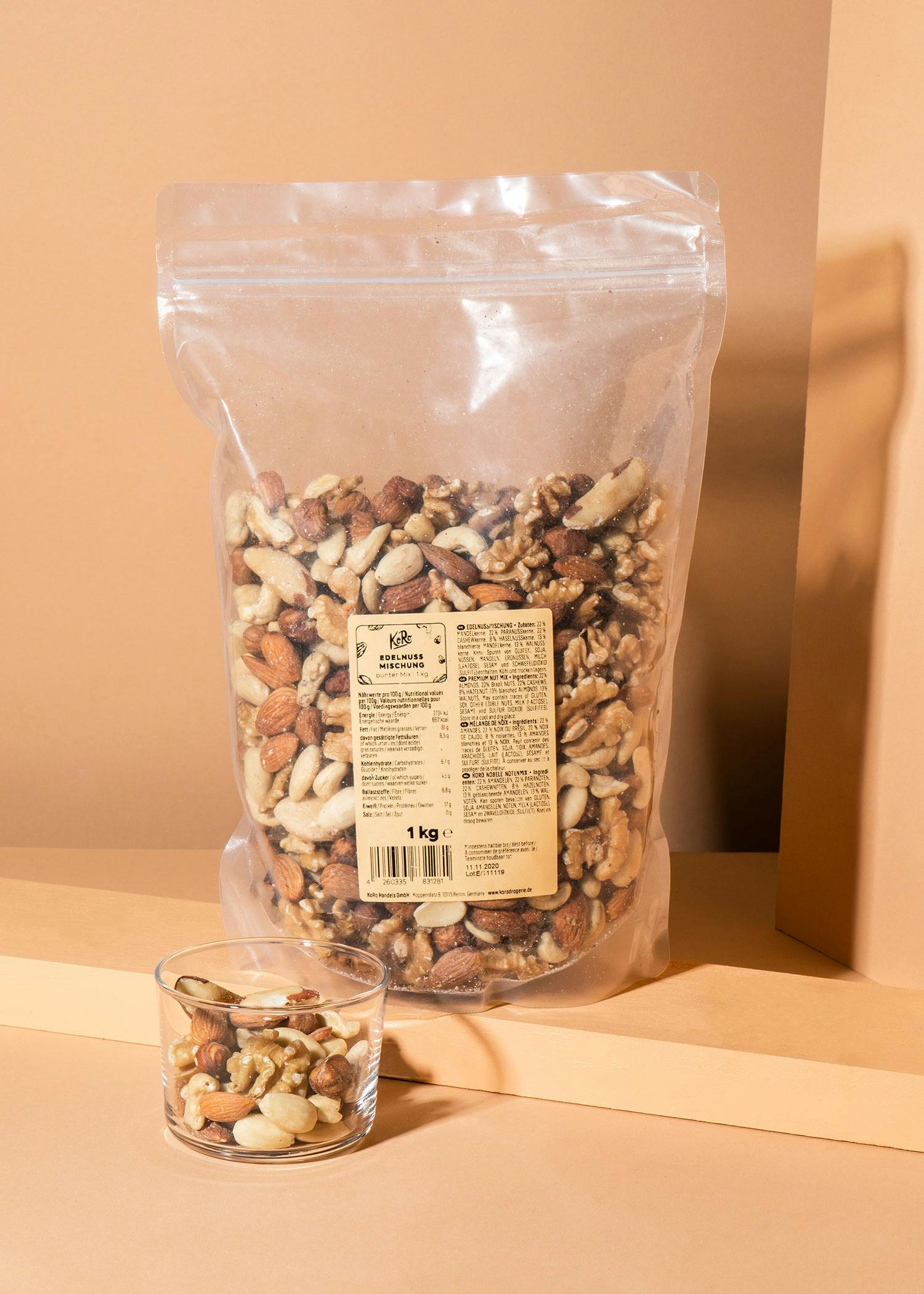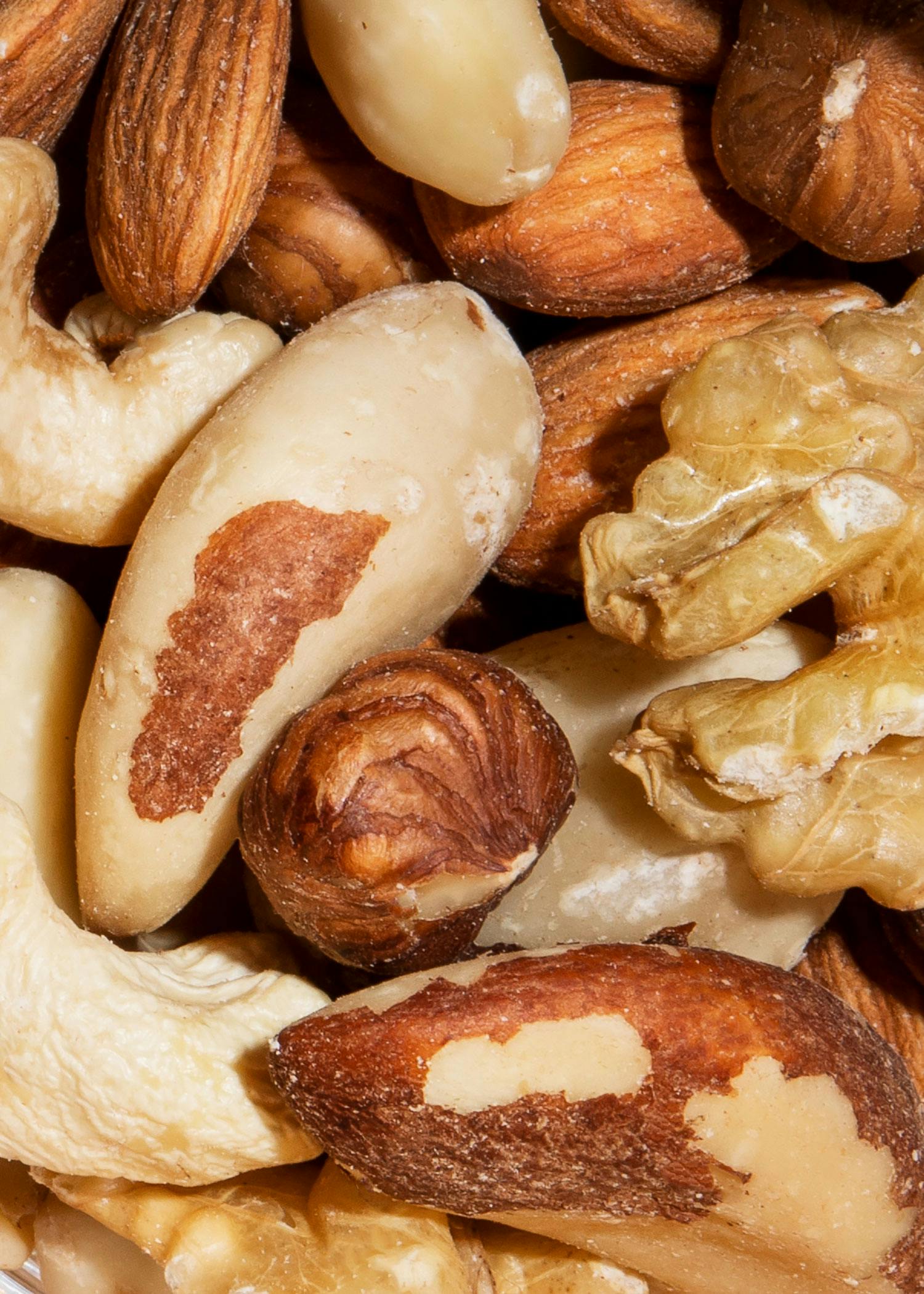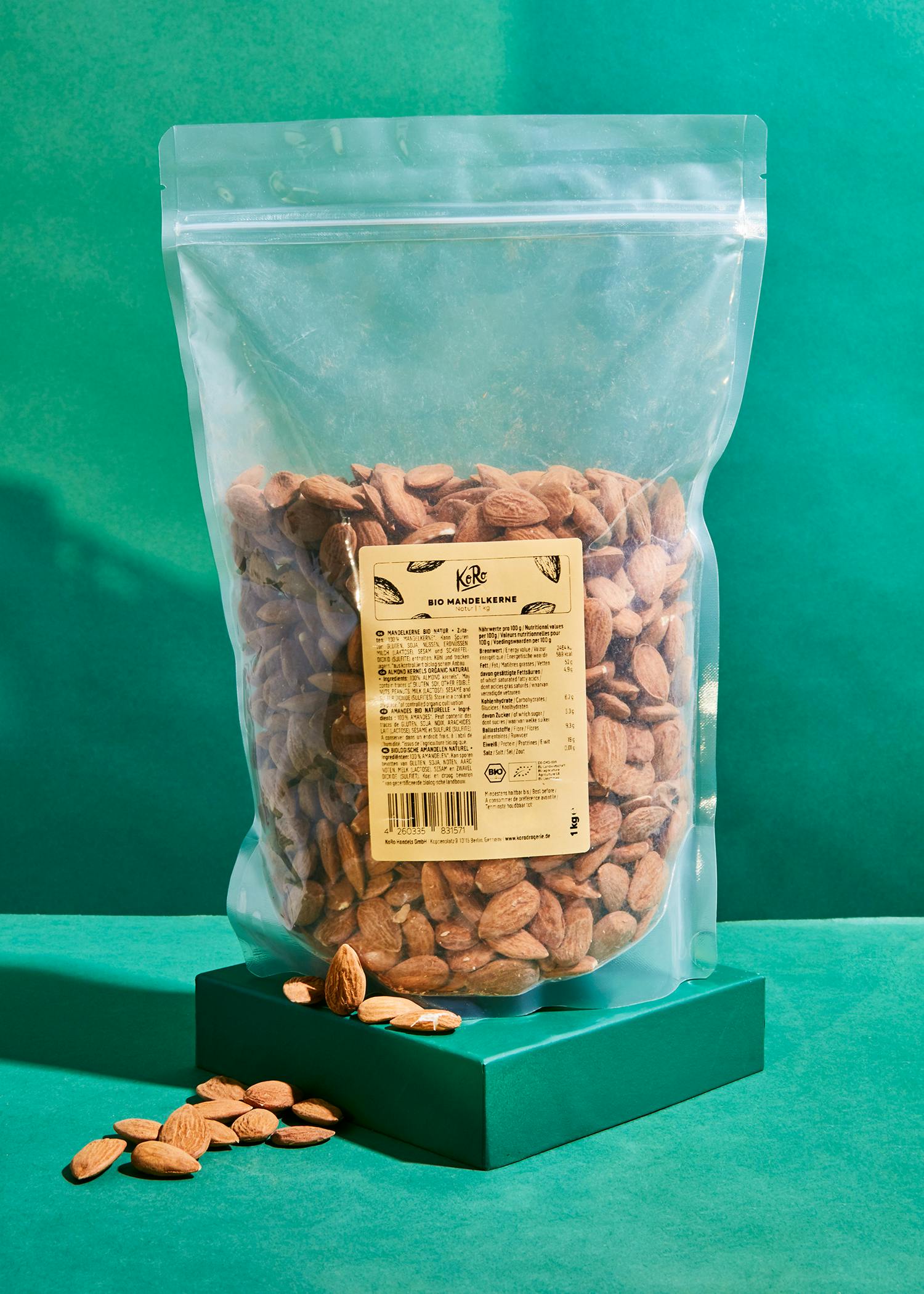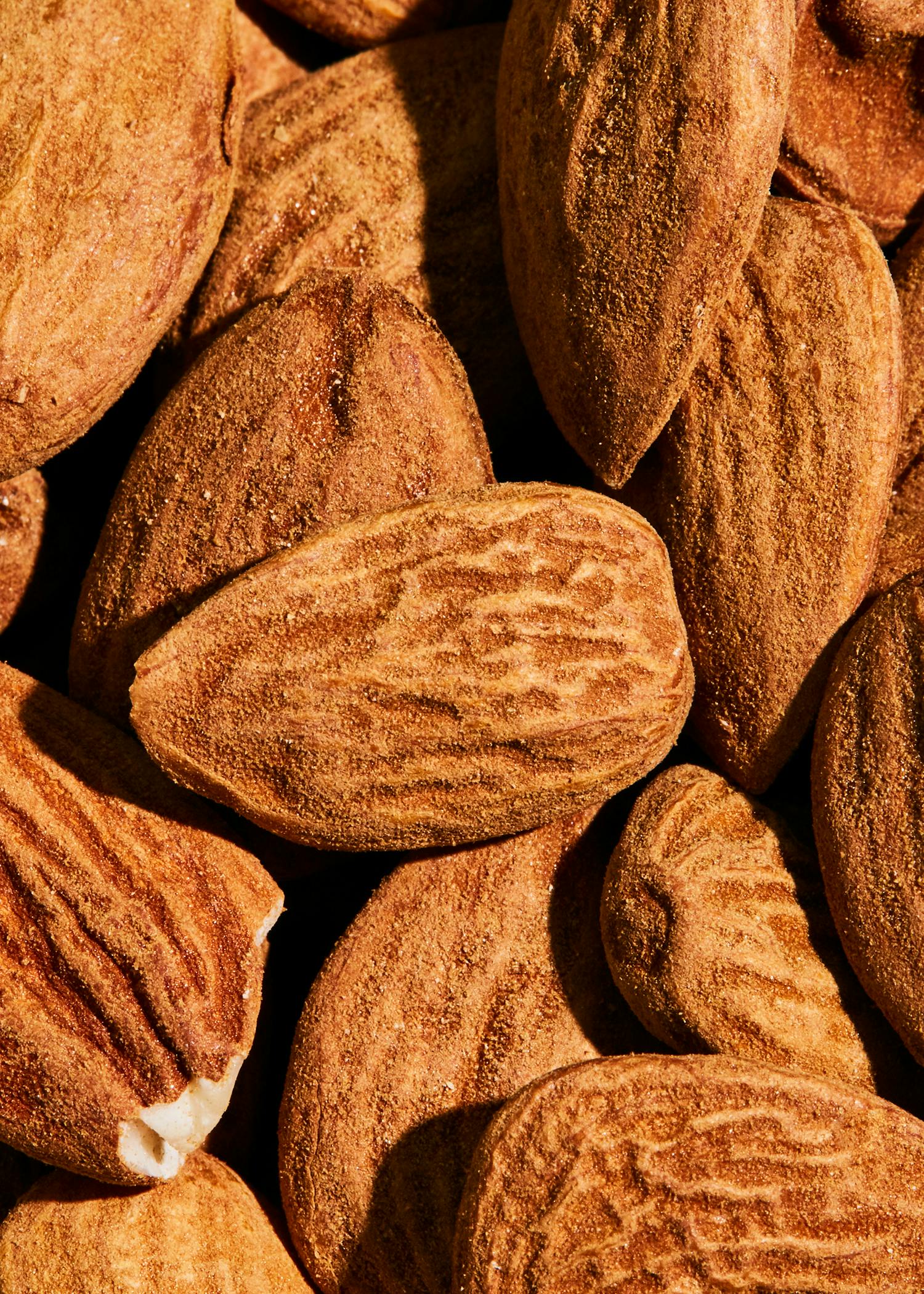3 essentials for your energy supply
Your stomach is growling and your energy levels are low. The only thing that can help now is a really good snack! And we wouldn't be KoRo if we didn't have something delicious for you! A little tip first: you should remember these three key words when it comes to energy intake: carbohydrates, fats and proteins.
- Carbohydrates have an influence on blood sugar levels. Simple carbohydrates such as sugar in soft drinks or white bread have a short-term effect on insulin levels. On the other hand, you can feed on complex carbohydrates in the long term. You can find them in pulses, nuts or wholegrain products, for example.
- Fats function more as energy stores. They are, so to speak, the reserve that the body can fall back on in an emergency. Monounsaturated or polyunsaturated fatty acids are more suitable here. In other words, it is better to reach for vegetable fats or a nut mix rather than a bag of potato chips.
- Proteins act as a kind of building material for the body, but can also be used to generate energy for a long time. You can get plant-based proteins from lentils, tofu and nuts or protein bars.
We will now show you which seven foods can provide you with exactly the right nutrients and are also practical for on the go.
1. nuts
Nuts in all shapes and colors are wonderful companions. Our almonds, for example, score highly with 21 g of protein per 100 g and also have a high fiber content of 13 g per 100 g. Nut mixes such as the KoRo trail mix, as well as nut bars and nut butters, are also a great option.
2. fruit
Classic fruits are an all-time favorite when energy levels are low. Bananas, apples and pears fit in every backpack and are also nice and fresh. Also very practical: dried fruit. The fruit is much lighter and lasts longer than fresh fruit!
3. avocado
A little avocado before you set off on your hike will provide you with monounsaturated fatty acids. If you eat avocado toast, it's best eaten with wholemeal bread, which contains valuable fiber.
4. energy balls
Energy balls combine various ingredients to create a spherical snack. You can make these little balls yourself from dates and nuts using a high-performance blender. If you want to save yourself the work, our ready-made energy balls in various flavors are just the thing.
5. pumpkin seeds
Pumpkin seeds are little all-rounders and fit into even the tiniest backpack. The green seeds contain valuable ingredients and are rich in protein. Our pumpkin seeds from Styria , for example, contain 37 g of protein per 100 g.
6. rolled oats
Rolled oats are not only an inexpensive food, but also incredibly uncomplicated. For example, you can prepare a delicious porridge at home using oat flakes, fresh fruit and nut butters and keep it warm in a thermo container. On the go, you can opt for a rustic version: All you need for porridge is rolled oats, water and a fire pit. Get creative with toppings: maybe you can find fresh berries in the forest or a few nuts and seeds in your rucksack?
7. liquid
You probably learned it in the first season of 7 vs. Wild at the latest: nothing works without water. If you find it difficult to drink pure water, you can of course also prepare teas or spritzers.
Which snacks should you take with you on your next adventure? Take a look at our store and equip yourself with your seven favorites for your next trip into the wilderness!
